
Article by Will Swanton, courtesy of The Australian.
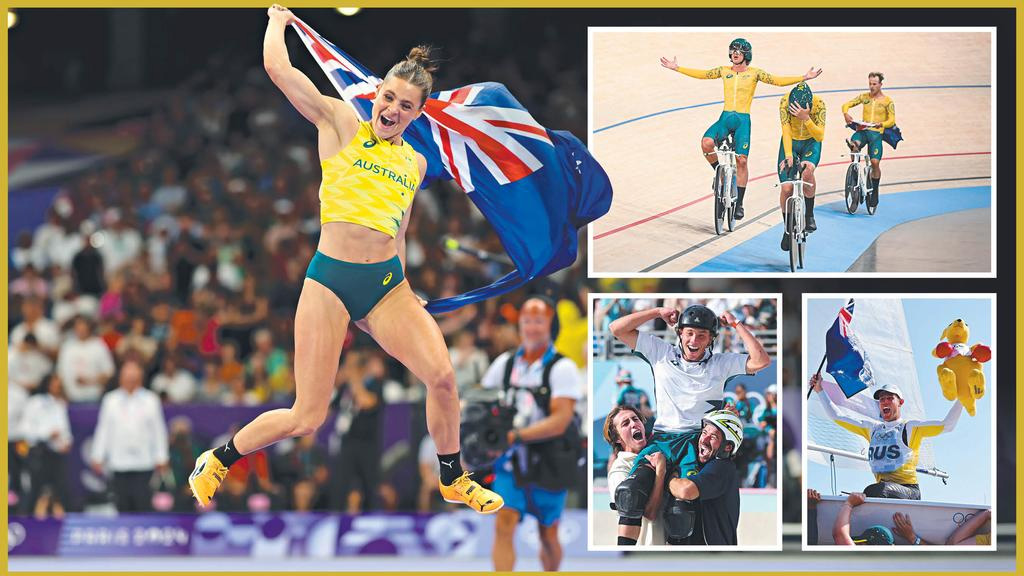
The sky was the limit for Nina Kennedy. She raised the bar and cleared it. Delivered an unforgettable record-breaking 18th gold medal for Australia’s greatest Olympic team. Rare air has been found in Paris.
Moments before Kennedy freefell to the mat to win the pole vault – with flag-bearer and double gold medal winning Jessica Fox whooping it up in the crowd in a thunderous atmosphere at Stade de France, and the wider Australian contingent in the Olympic village and beyond celebrating her graceful descent like it was the sporting version of a moon landing – chef de mission Anna Meares admitted, “I feel like I’m going to lose my shit if we win one more.”
Kennedy was on the runway. Eye of the tigress. Eye on history. Another triumph would take this exuberant, engaging and endlessly entertaining Australian team soaring past the legendary eras of Dawn Fraser, Betty Cuthbert, Ian Thorpe and Cathy Freeman for gold medals.
“Damn, girl, you’re good enough,” Kennedy told herself before she did indeed win one more, leaping 4.9m, a height none of her rivals could match.
After years of physical and mental health battles, she was all the way up there on cloud nine, becoming Australia’s first female pole vault champion and making the class of 2024 the most successful in our nation’s prodigious Olympic history.
It was a fourth gold medal in one golden day, following the triumphs of dinghy sailor Matt Wearn, skateboarder Keegan Palmer and the men’s cycling team pursuit. Meares didn’t lose the plot. She found her words.
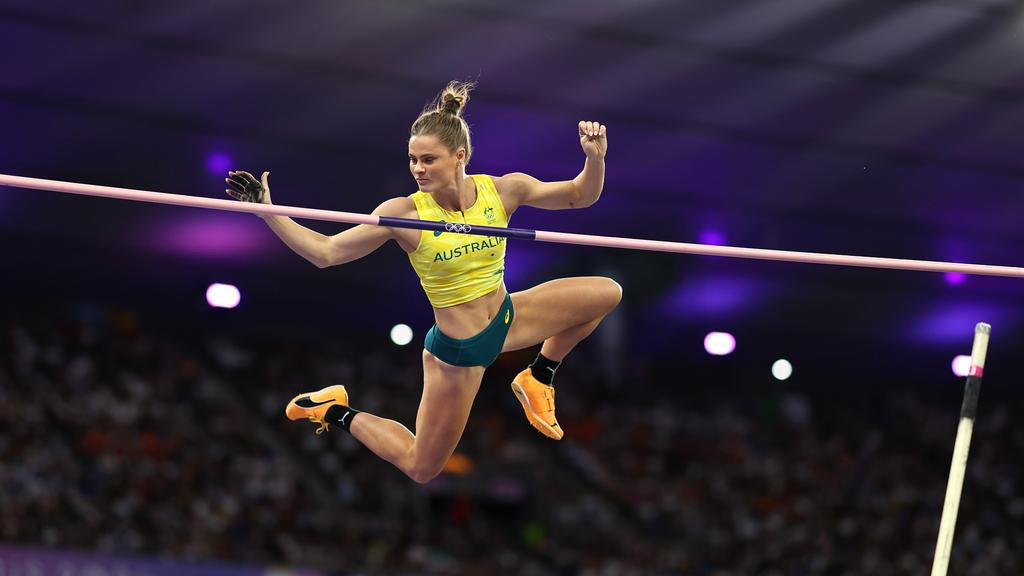
“We’ve done something very great, haven’t we, as a team,” said Meares, herself a winner of six Olympic medals on the cycling track, two of them gold.
“I’m very proud of all our athletes. It’s incredibly special. I haven’t won any of those medals. I’ve just been able to enjoy being part of the team behind the team. The environment that I feel we have here is incredibly positive.”
From the all-conquering swimmers, to the fearless skateboarders, to the unstoppable canoeing Fox sisters and now the high-flying Kennedy, there’s never been an Australian team like it. A wild and wondrous bunch who, on a wild and wondrous Wednesday, collected four gold medals, and a couple of bronze in the back pocket, culminating in Kennedy going up, up, up and away for the decisive victory. Damn, girl.
“It’s mine,” she said.
And Australia’s. The 18th gold medal took the team past the record held jointly by their predecessors in Athens in 2004 and Tokyo three years ago.
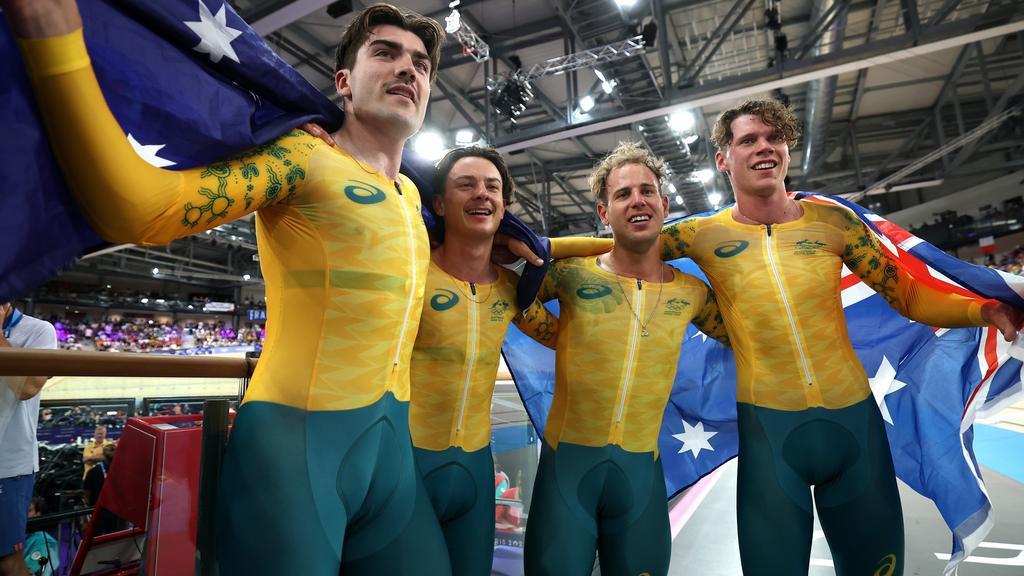
Historic performances have come in one of the world’s most famed and picturesque cities. It’s as if the flair, passion and optimism of Paris itself has infiltrated the Australian camp. From the Eiffel Tower to the River Seine, what a backdrop to results that have made your jaw drop.
The Australians trailed only China (27) and the USA (25) for gold medals at the end of day 12 of competition. They led Olympic powerhouses France (13) and Great Britain (12).
Australia has performed so well on and in water that someone might have walked on it.
Early Thursday morning, while we were still recovering from the headiness of Kennedy’s triumph the night before, Moesha Johnson took silver in the 10km open water swim on the Seine. “I’m so proud that we sit third on the tally,” Meares said.
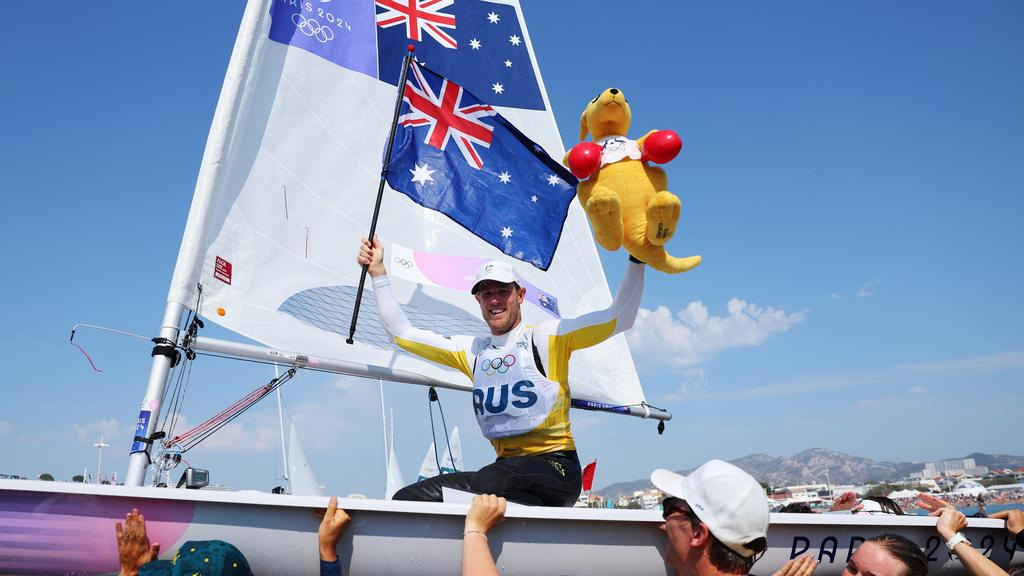
Wednesday’s blitz began with Wearn’s victory down at Marseilles. Hello, sailor. He won the dinghy final – better known as the Laser Class in previous Olympics – to defend his Tokyo Games title and, well, put wind in the sails of Australia’s pursuit of an 18th gold.
Next up was Palmer. Dude, all those skate parks at home packed with teenagers every weekend and school holidays – who knew they were breeding grounds for Olympics champions?
Palmer defended his park title at Place de la Concorde with a blazing, flipping, swooping run. He became a two-time Olympic champion at the age of 21.
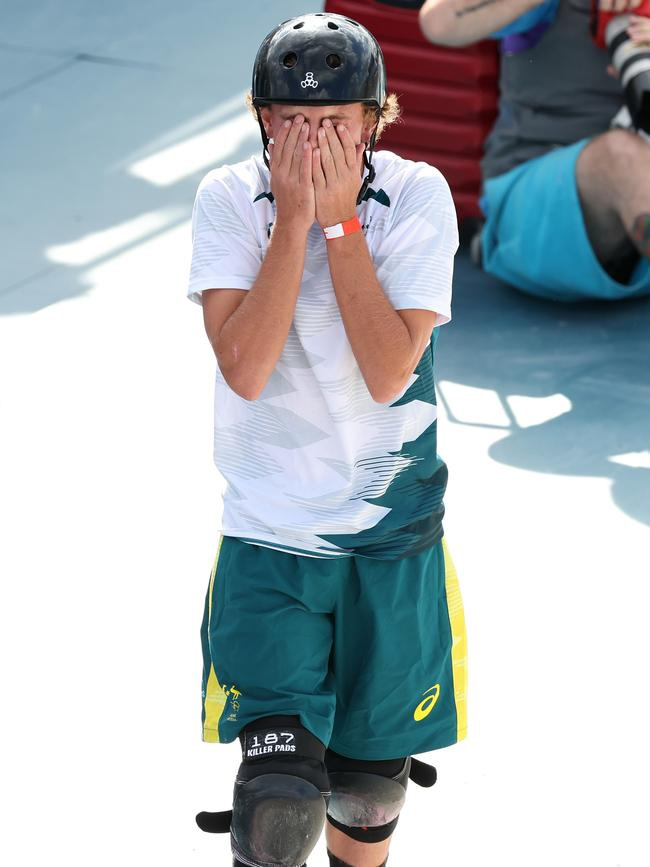
“I’m speechless,” he said. “I got really lucky. I just can’t believe it, bro. Everyone’s yelling at me. I’m just happy. Come on, Australia. Let’s do this!”
Australia did this indeed. The men’s cycling team pursuit – Oliver Bleddyn, Sam Welsford, Conor Leahy and Kelland O’Brien – comfortably beat their Team GB rivals by more than two seconds before Kennedy went up, up and away.
A huge reason for the unprecedented success has been the inordinate number of back-to-back champions.
From 1896 to 2004, only six Australians defended an individual Olympic title: rower Bobby Pearce, hurdler Shirley Strickland and swimmers Dawn Fraser, Murray Rose, Ian Thorpe and Grant Hackett.
Five members of the new era have done it: Wearn, Palmer, canoeist Fox (the C1 slalom) and swimmers Ariarne Titmus (400m freestyle) and Kaylee McKeown, who’s done it in both backstroke events (100m and 200m). More rare air.
And the sky’s still the limit. Boxers, basketballers, javelin throwers, runners, cyclists and beach volleyball players are a hop, skip and a jump from adding to the history-making haul.
Damn, boys and girls, A new era of Olympic legends is born.
“It’s incredible to be part of a successful team,” said three-time Olympic swimmer Bronte Campbell.
“To have people across multiple sports winning medals and to see your friends and your teammates achieve their dreams – we all know where we came from and to see all these beautiful stories coming out … it’s the sort of thing that keeps you coming back. To really feel part of this cohort of amazing people.”















